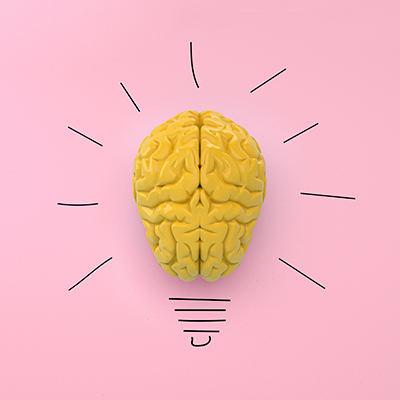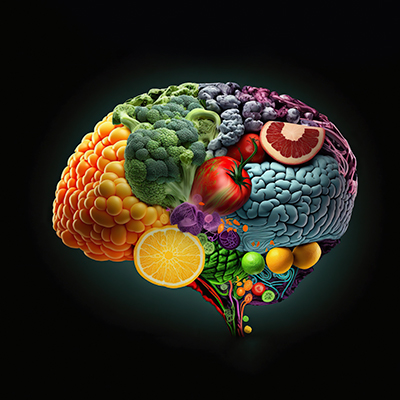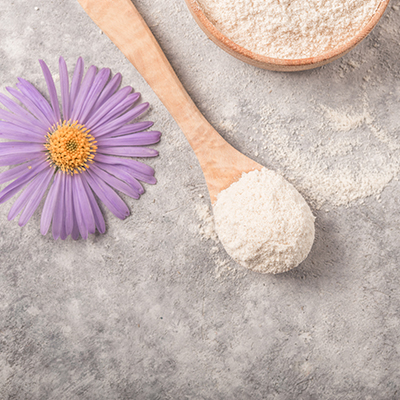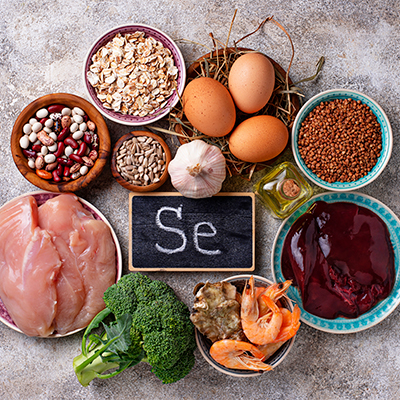Digestive System
All information about "Digestive System" and the related magazine articles can be found here.
Our articles are written clearly and link to scientific studies where relevant. This is how we meet our own standards: we regularly deliver new, high-quality content for you—free of charge, no sign-up required, with the highest possible benefit to you.

Getting all the vitamin B12 you need in a vegan diet
Those on a vegan or vegetarian diet should pay more attention to whether they have an adequate supply of vitamin B12. Find out more now

Get rid of bladder infections!
Almost every woman has had a urinary tract infection, and some suffer from it regularly. Find out why we should take this infection seriously, how it develops and what types of treatment are available!

About vitamin B12 deficiency and pain
We all know that B vitamins are very important for our health. But many people don't realise how serious a vitamin B12 deficiency can be! Not just for vegetarians, vegans, pregnant or breastfeeding women, diabetics or even alcohol drinkers!

L-threonine - an essential amino acid with important functions
Amino acids are an important building block for our health. Which ones can the body produce and which ones need to be ingested in order to fulfil all functions? What are the risks for vegans and what are the dangers of a deficiency? Our report answers the most important questions!

Why NADH is important for the body
They are the basic building blocks of the body: cells. Their job is to absorb nutrients and use their energy for metabolism. An important factor in this process is NADH.

The link between L-Arginine and women's health
The amino acid L-Arginine is primarily associated with muscle growth and improved endurance. Some studies suggest that it may also have a positive effect on women's health.

Zinc deficiency: important facts for your health
Discover the effects of zinc deficiency on your health and how to recognise and treat it. Find out why zinc is an essential trace element for your body and mind, and how to maintain optimal zinc levels. Improve your health with this comprehensive information on zinc deficiency!

Fitter and stronger with L-Carnosine?
Although carnosine can be produced by the human body, it is a popular supplement among athletes - in powder or capsule form. In this article, you can find out what specific effects it has on performance and what other functions it is involved in.

Magnesium: How does it affect the menstrual cycle?
Many women are familiar with them and suffer from them every month: Menstrual cramps. Read more about the processes in your body during your period, discover natural approaches to relieve the pain and find out what role magnesium and other nutrients play in this. Improve your quality of life during your period in a completely natural way!

Heartburn - an annoyance and a burden!
Many people suffer from heartburn after a hearty meal. You have a glass of wine or beer, treat yourself to a nice dessert or even a little digestive liqueur - and there it is again: a sharp pain, pressure in the stomach and sometimes even nausea: heartburn!

Vitamin B1 deficiency - here too
B vitamins are essential for our bodies! Not only do many metabolic processes depend on them, but so do our nerves. If you think vitamin B1 deficiency is only a problem in developing countries, think again! Find out more here.

Tribulus Terrestris is often promoted for muscle building and libido.
When it comes to muscle building and sexual health, many people prefer Tribulus Terrestris to synthetic products. But what about the real effects of the natural supplement?

Iron deficiency anaemia
Iron is an essential trace element. But why is it so important for survival and how is it linked to anaemia or even depression? Here we explain the most important consequences of iron deficiency!

Collagen hydrolysate - what to look out for
Hydrolysed collagen is more easily absorbed by the body than normal collagen. All you need to know about the supplement

Diet for osteoarthritis - how supplements can help
Now there is support for the joints - with a healthy diet and the right supplements.

Irritable bowel syndrome - causes, symptoms and treatment

Acidic foods
What is an acid-base balance? And how can I achieve it? Which foods are metabolised in an acidic way and which in an alkaline way? Our report answers the most important questions on these topics!

SAMe - for more energy and a better mood
Learn how the amino acid S-adenosylmethionine (SAMe) can support your mood, energy levels and liver function.

Why the body needs a good supply of selenium
Immune defence, the cardiovascular system and the thyroid - the trace element selenium plays an important role in many bodily functions.

Lose weight with amino acids
We have learned that our muscles use energy. The more muscular the body, the more energy it can use. Find out how amino acids are involved here!

Tryptophan - for wellbeing and sleep

What should people with diabetes not eat?
Everyone talks about sugar, but what does it mean when blood sugar levels become a serious problem? Find out all you need to know about diabetes!

Nattokinase - what is the fibrinolytic protein?
The enzyme nattokinase, derived from the soya bean dish natto, is believed in Japan to be one of the reasons for longevity. Find out more here!

Copper deficiency - causes, symptoms and long-term effects
Copper is essential for our health. Not only does the immune system need this trace element, but many other processes in the body do too. Find out here why a copper deficiency is often discovered too late and what the consequences are!
Your body, your digestive system: Everything you need to know about the anatomy and function of digestion!
Have you ever wondered exactly how your body converts the food you eat into energy and nutrients? The journey that your breakfast, for example, takes through your digestive tract is complex. From the initial mechanical grinding in the mouth to the final excretion of the indigestible remains – every step plays an important role in ensuring that your body gets the nutrients it needs.
Nutritionists and doctors agree: a thorough understanding of digestion is the key to a healthy and vital life. Ready to learn more? We can give you the information you need!
How is the digestive system structured?
The human digestive system includes several important organs:
- Mouth
- Oesophagus
- Stomach
- Small intestine (including duodenum)
- Large intestine (including colon and rectum)
- Liver
- Pancreas
- Gall bladder
Each of these organs has specialized tasks and functions that ensure the efficiency of the process and thus the absorption of nutrients [1].
How does digestion work in simple terms?
The digestive system is a comprehensive model that consists of several organs that work together to break down the food we eat into usable nutrients. The sequence is clearly structured and quickly explained [1]:
- 1. The process begins in the mouth, where mechanical crushing and enzymatic digestion by saliva begins.
- 2. The food pulp enters the stomach via the esophagus.
- 3. In the stomach, gastric acid and the enzyme pepsin continue the digestive process.
- 4. In the small intestine, the substances are further broken down and absorbed, aided by enzymes from the pancreas and bile from the gallbladder.
- 5. The large intestine (including the rectum) absorbs water and electrolytes before excreting indigestible residues as stool.
Why is digestion important?
The digestive process is essential to break down the nutrients absorbed from food into smaller molecules that the body can absorb and use. These substances are necessary for energy, growth, cell repair and general well-being. Without an efficient digestive process, the important substances could not be absorbed into the body.
Which organ is particularly important for digestion?
Each organ in the complex digestive tract plays a crucial role and has its own function, but the small intestine is central to efficient digestion and absorption of nutrients. The small intestine is the longest section of the digestive tract and plays a key role in breaking down food into absorbable components.
The pancreas produces a variety of enzymes that are released into the small intestine. These enzymes break down carbohydrates, proteins and fats into their smallest components so that they can then be absorbed through the small intestinal wall. In addition, the liver produces bile, which is stored in the gallbladder and then released to emulsify fats and facilitate their absorption in the small intestine [2].
How long does it take for food to be digested in the stomach?
The digestion process in the stomach can take between 2 and 4 hours, depending on the type and amount of food consumed. Fats and protein-rich foods take longer to digest than carbohydrates.
How long does digestion take until defecation?
The length of time it takes for food to be digested can vary depending on the type of food and individual factors. In general, it takes about 6 to 8 hours for food to pass through the stomach and small intestine. After that, it can take another 12 to 24 hours for the indigestible remains to be transported through the large intestine and excreted as stool.
Why do digestive problems occur?
We've all experienced the uncomfortable feeling – bloated tummy, sluggish digestion, constantly changing moods. Digestive problems can occur for so many reasons: poor eating habits, stress, too little fiber, insufficient fluid intake and certain medical conditions. But don't worry, there are simple ways to get your gastrointestinal tract going! Find out more about bowel health here.
How can you stimulate digestion?
The intestines digest continuously, but the efficiency of the digestive process can be affected by various factors such as diet, hydration and physical activity. Taking the following aspects into account can help you support your digestive system:
Nutrition and dietary fiber
Dietary fiber is the indigestible part of plants that stimulates peristalsis by increasing stool volume and accelerating intestinal transit. There are soluble fibers that dissolve in water and form a gel-like substance, and insoluble fibers that absorb water and increase the mass of the stool. Foods such as whole grains, fruits, vegetables, and legumes are rich in fiber and thus promote healthy digestion. They form propionic acid in our intestines – find out more here!
Fluid intake
Water is essential for the digestive process, as it softens stools and facilitates the movement of food through the intestines. Adequate fluid intake helps to prevent constipation, and supports the functioning of enzymes necessary for the breakdown of nutrients. It is recommended to drink at least 1.5 to 2 liters of water daily, depending on body weight and activity level.
Physical activity
Regular exercise promotes intestinal motility, which is the ability of the intestines to move food through wave-like muscle contractions. Activities such as walking, running, swimming and yoga can stimulate intestinal motility and help to prevent digestive disorders such as constipation. Exercise also reduces stress, which can negatively affect the digestive process.
Stress management
Stress can significantly impair the digestive process by increasing the release of stress hormones such as cortisol, which can slow down or speed up bowel function. Relaxation techniques such as meditation, deep breathing, progressive muscle relaxation and adequate sleep can help to reduce stress and thus support digestion.
Probiotics and prebiotics
Probiotics are live microorganisms that can positively influence intestinal flora. They are found in fermented foods such as yogurt, kefir, sauerkraut, and kimchi. Prebiotics, on the other hand, are indigestible food components that promote the growth and activity of beneficial bacteria in the gut. Both contribute to intestinal health by maintaining the balance of intestinal flora and improving the digestive process [2].
Chewing and eating habits
Thorough chewing is the first step in the digestion process and prepares food for enzymatic digestion in the stomach and intestines. Eating slowly and chewing thoroughly ensures that food is well-crushed, facilitating mechanical digestion and improving the absorption of nutrients [5]. In addition, eating mindfully can help avoid overeating and relieve the digestive system.
More helpful tips
Different life situations or illnesses require an adjustment of the diet to ensure the supply of nutrients and to alleviate any symptoms:
- More about optimal nutrition during pregnancy
- Help with nutrition tips for osteoarthritis
- Iron deficiency and iron deficiency anemia
Sources
[1] https://www.netdoktor.de/anatomie/verdauungssystem/
[2] https://www.studysmarter.de/schule/biologie/der-menschliche-koerper/verdauungstrakt/
[3] https://www.kenhub.com/de/library/anatomie/verdauungssystem
[4] https://viamedici.thieme.de/lernmodul/557179/529666/verdauungssystem
[5] https://www.spektrum.de/lexikon/biologie/verdauung/69251
